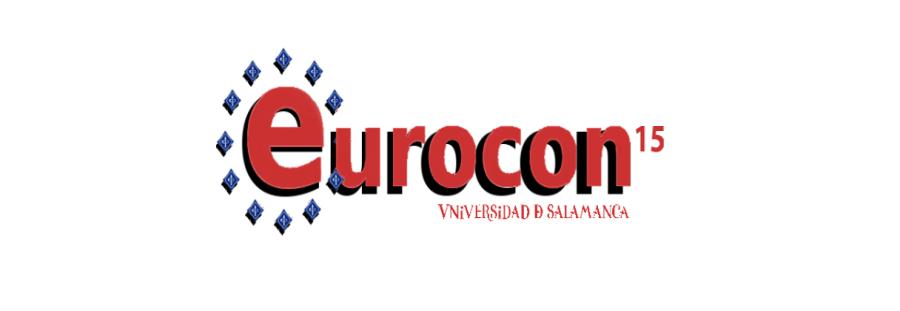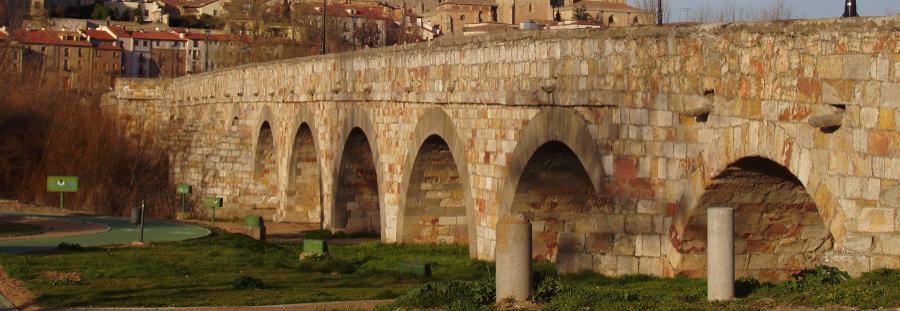Plenary Speakers
Francisco Herrera

Francisco Herrera (http://decsai.ugr.es/~herrera) is a Professor in the Department of Computer Science and Artificial Intelligence at the University of Granada, Spain. He has been the supervisor of 36 Ph.D. students. He has published more than 290 journal papers (H-index 99) that have received more than 35000 citations (Scholar Google). He is co-author of the books "Genetic Fuzzy Systems" (World Scientific, 2001) and "Data Preprocessing in Data Mining" (Springer, 2015).
He currently acts as Editor in Chief of the international journals "Information Fusion" (Elsevier) and “Progress in Artificial Intelligence (Springer). He acts as editorial board member of a dozen of journals, among others: International Journal of Computational Intelligence Systems, IEEE Transactions on Fuzzy Systems, IEEE Transactions on Cybernetics, Information Sciences, Knowledge and Information Systems, Fuzzy Sets and Systems, Applied Intelligence, Knowledge-Based Systems, and Swarm and Evolutionary Computation.
He is a Fellow of the European Coordinating Committee for Artificial Intelligence and the International Fuzzy Systems Association. He has been given many awards and honors for his personal work or for his publications in journals and conferences. His areas of interest include, among others, data science, data preprocessing, cloud computing and big data.
Title
Big Data: Technologies and Applications
Abstract
In this age, big data applications are increasingly becoming the main focus of attention because of the enormous increment of data generation and storage that has taken place in the last years, in science, business, ... This situation becomes a challenge when huge amounts of data are processed to extract knowledge because the data mining techniques are not adapted to the new space and time requirements. We must consider the new paradigms to develop scalable algorithms.
At this conference we will introduce briefly the technologies that have emerged strongly in recent years (Hadoop ecosystem, Spark, …) and we will pay attention to applications in various fields, showing some cases of study.
Marios M. Polycarpou
 Marios M. Polycarpou is a Professor of Electrical and Computer Engineering and the Director of the KIOS Research Center for Intelligent Systems and Networks at the University of Cyprus. His teaching and research interests are in intelligent systems and networks, adaptive and cooperative control systems, computational intelligence, fault diagnosis and distributed agents. He has published more than 280 articles in refereed journals, edited books and refereed conference proceedings, and co-authored 7 books. He is also the holder of 6 patents. Prof. Polycarpou is a Fellow of the IEEE and has served as the President of the IEEE Computational Intelligence Society between Jan. 2012 – Dec. 2013. He has served as the Editor-in-Chief of the IEEE Transactions on Neural Networks and Learning Systems between 2004-2010. He is the recipient of the IEEE Neural Networks Pioneer Award for 2016. Prof. Polycarpou has participated in more than 60 research projects/grants, funded by several agencies and industry in Europe and the United States, including the prestigious European Research Council (ERC) Advanced Grant.
Marios M. Polycarpou is a Professor of Electrical and Computer Engineering and the Director of the KIOS Research Center for Intelligent Systems and Networks at the University of Cyprus. His teaching and research interests are in intelligent systems and networks, adaptive and cooperative control systems, computational intelligence, fault diagnosis and distributed agents. He has published more than 280 articles in refereed journals, edited books and refereed conference proceedings, and co-authored 7 books. He is also the holder of 6 patents. Prof. Polycarpou is a Fellow of the IEEE and has served as the President of the IEEE Computational Intelligence Society between Jan. 2012 – Dec. 2013. He has served as the Editor-in-Chief of the IEEE Transactions on Neural Networks and Learning Systems between 2004-2010. He is the recipient of the IEEE Neural Networks Pioneer Award for 2016. Prof. Polycarpou has participated in more than 60 research projects/grants, funded by several agencies and industry in Europe and the United States, including the prestigious European Research Council (ERC) Advanced Grant.
Title
Intelligent Big-Data Monitoring of Critical Infrastructure Systems
Abstract
Modern societies have reached a point where everyday life relies heavily on the reliable operation and intelligent management of critical infrastructures, such as electric power systems, telecommunication networks, water systems, and transportation systems. The design, control and fault monitoring of such systems is becoming increasingly more challenging as their size, complexity and interactions are steadily growing. The current trend is towards the use of a larger number of sensors, leading to so called big data environments. However, in situations where faults arise in one or more of the sensing devices, this may lead to a serious degradation in performance or even to an overall system failure, especially as a result of propagating faults in interconnected subsystems. The goal of this presentation is to motivate the need for intelligent monitoring, fault diagnosis and security of critical infrastructure systems and to provide a methodology for detecting and isolating multiple sensor faults in a class of nonlinear dynamical systems. The detection of faults in sensor groups is conducted using robust analytical redundancy relations, formulated by structured residuals and adaptive thresholds. Various estimation and learning algorithms will be presented and illustrated, and directions for future research will be discussed.
John Thomson
 Prof. John Thompson is with the School of Engineering at the University of Edinburgh and currently holds a personal chair in signal processing and communications He specializes in antenna array processing, efficient hardware implementation of signal processing algorithms and energy efficient wireless communications. He has published approximately 100 journal and 120 conference papers on these topics, including a number of invited papers, and book chapters. He was elected as a Member-at-Large of the Board of Governors of the IEEE Communications Society, the second largest IEEE society, for the period 2012-2014. He was previously the overall project leader for the multi-university EPSRC project “Adaptive Hardware Systems with Novel Algorithmic Design” and led the EMRS DTC Project on "Sampling Techniques for Broadband Electromagnetic Scanning".
Prof. John Thompson is with the School of Engineering at the University of Edinburgh and currently holds a personal chair in signal processing and communications He specializes in antenna array processing, efficient hardware implementation of signal processing algorithms and energy efficient wireless communications. He has published approximately 100 journal and 120 conference papers on these topics, including a number of invited papers, and book chapters. He was elected as a Member-at-Large of the Board of Governors of the IEEE Communications Society, the second largest IEEE society, for the period 2012-2014. He was previously the overall project leader for the multi-university EPSRC project “Adaptive Hardware Systems with Novel Algorithmic Design” and led the EMRS DTC Project on "Sampling Techniques for Broadband Electromagnetic Scanning".
Title
The Advantage of Communications enabling the Smart Grid
Abstract
Significant carbon emission reductions are needed to offset the global challenge of climate change. One important direction on this is to exploit Information and Communications Technology (ICT) to make our lives much more energy efficient. Current power networks can be made much more efficient by using ICT to reduce peaks in energy demand, integrate renewable energy sources and make the power network more efficient overall – the “smart grid”. This talk describes the role of communications systems and signal processing in supporting more energy efficient power networks in future. We will describe research advances from the current European ADVANTAGE project relating to energy efficiency within the home, in neighbourhood areas and in the grid overall.
Isidro Laso
 Head of Startup Europe Sector, European Commission Directorate General for Communications Networks, Content and Technology (EC DG-Connect)
Head of Startup Europe Sector, European Commission Directorate General for Communications Networks, Content and Technology (EC DG-Connect)
Isidro’s objectives for the Policy Fellowship are to share views on policy measures to strengthen the environment for web entrepreneurs in Europe; to learn new ways of policy making better adapted to an era of extremely rapid change that characterise the web startups; and to access international knowledge and best practices related to policies for web startups.
Costas Stasopoulos
EEE Region 8 Director 2015-2016
Electricity Authority of Cyprus (EAC)
Acting Area Manager
Nicosia, Cyprus
http://cy.linkedin.com/pub/costas-stasopoulos/7/793/23a/
WORK EXPERIENCE
Upon completion of his studies in the US he worked for a year at the Agence France-Presse (AFP), an international news agency as an Electrical Enginner and then for three years at the Société Internationale de Télécommunications Aéronautiques (SITA), the world's leading service provider of integrated IT business solutions and communication services of the air transport industry.
In 1991 he moved on to the Electricity Authority of Cyprus (EAC), the major electricity provider of Cyprus, responsible for the generation, transmission and distribution of electricity in Cyprus. There he held various Engineering Specialist and Management positions in various departments acquiring experience and knowledge from different areas and disciplines. he currently hold the position of Acting Area Manager having under his management more than 430 employees. In the recent years he was the Manager for the Forward Planning, issuing of Terms for Electricity Supply and for the Methods and Programming Departments. He has managed successfully several projects including GIS and large Photovoltaic and Wind Farm plants. He has formed policy regarding renewable energy, grid connections and took part in many working groups and committees. His main interests include Renewable Energy, Smart Grids, Innovations and Start-ups.
IEEE ACCOMPLISHMENTS AND ACTIVITIES
He has been an active volunteer member of IEEE (Institute of Electrical and Electronics Engineers). He started volunteering from 1992 as a founding member of the Cyprus Section, moving through the levels of hierarchy to the position of Chair. Inspired by IEEE’s vision and successful global presence, he has been active, holding various roles of responsibility in committees, chapter and Region activities and IEEE conferences. He has also been privileged to hold the position of IEEE Region 8 Secretary from 2007-2012 and the very prestigious position of the IEEE Region 8 (Europe, Africa and Middle East) Director-Elect position for 2013-2014.
As IEEE Region 8 Director-Elect he has been active participating in various committees trying to find ways to influence decisions and form policies that would help IEEE members and humanity in general. As a member of the IEEE Africa initiative committee he has tried to find ways to increase the presence of IEEE in Africa and to benefit the general population through various technology projects. His interests include efforts to develop closer ties of IEEE and European Commission and to take advantage of projects offered through the Horizon 2020 program. He has participated actively in the following IEEE committees: IEEE New Initiatives Committee 2013, 2014, IEEE Smart Tech Metro Area Committee 2014, IEEE Europe Committee 2014, IEEE Africa Initiative Committee 2014, IEEE Committee on Entrepreneurship
As the Regional Director from January 2015 until the end of 2016, he is a member of the Board of Directors of IEEE and a member of the MGA Board and participate in various committees. Some of the committees that he is a member and has active role are the IEEE Ad Hoc Committee on Activities in Africa, IEEE Ad Hoc Committee on Engagement in Europe, MGA Strategic Direction & Environmental Assessment Committee and others. As the Regional Director he has participated in numerous events and represented IEEE in Conferences, Award Ceremonies and Milestone Events.
EDUCATION
He was born in Cyprus, a European Union member State. In 1983 He moved to the UnitedStates where he studied Electrical Engineering at the Rutgers University, New Jersey, USA. He received his B.Sc in Electrical and Computer Engineering in 1987. In 1992 he received a Masters in Business Administration (MBA), Management concentration, from the Maastricht Business School of Management, Netherlands.
CONFERENCES
- Honorary Chair Eurocon 2015, Salamanca, Spain
- Honorary Chair, Advances in Intelligent Systems and Computing 2013, 2014, Bilbao, Spain
- Honorary Chair ICEUTE 2014, Bilbao, Spain
- Honorary Chair, International Conference on Control, Decision and Information Technologies 2013 at Hammamet, Tunisia
- Honorary Chair, International Conference on Information Engineering and Computer Science (ICIECS), 2009, 2010, China
- Publicity Co-Chair, International Conference on Adaptive Science & Technology 2009, 2011, Accra, Ghana
- Conference Organizing Committee Melecon 2000, 2002, 2004
- Conference Organizing Committee MedPower 2000, 2002





